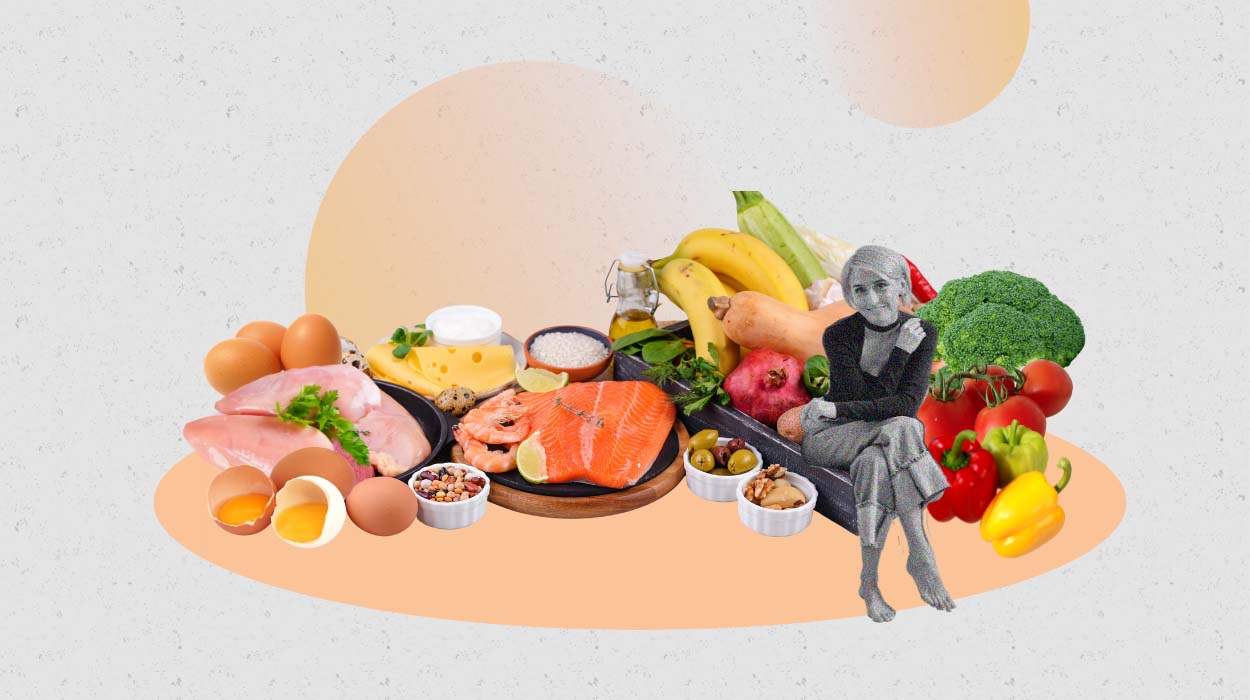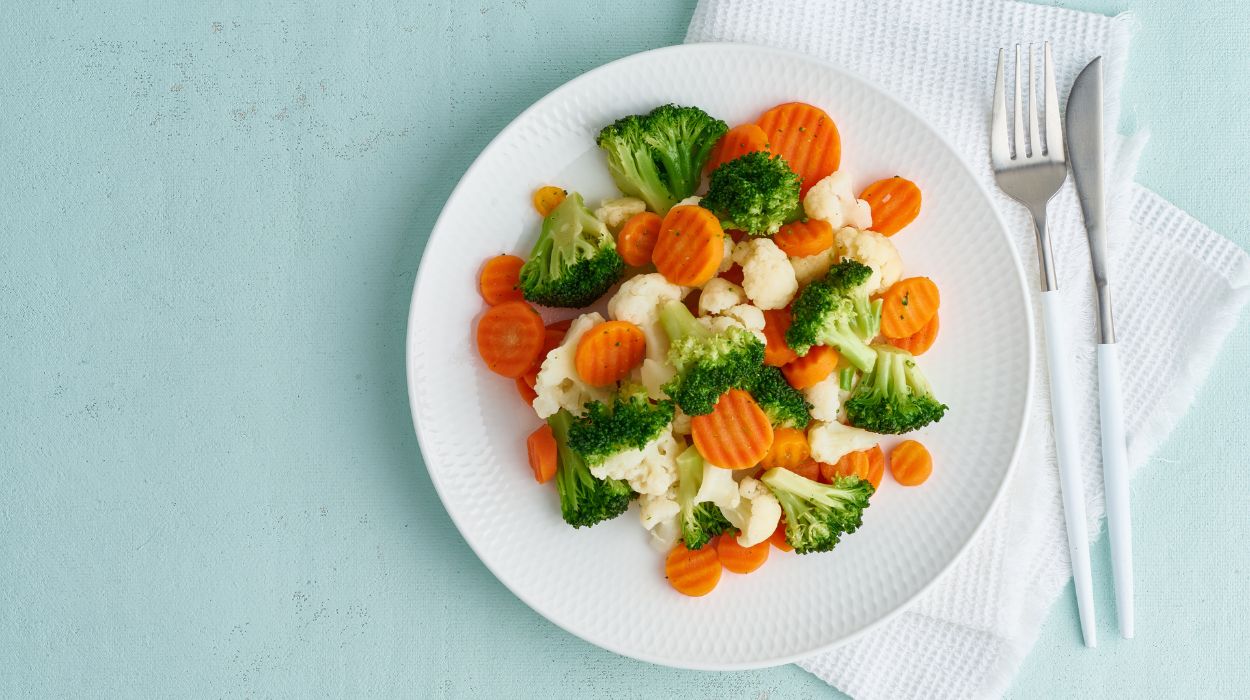 Expert's opinion
Expert's opinion
Expert's opinion
The article is a subjective view on this topic written by writers specializing in medical writing.
It may reflect on a personal journey surrounding struggles with an illness or medical condition, involve product comparisons, diet considerations, or other health-related opinions.
Although the view is entirely that of the writer, it is based on academic experiences and scientific research they have conducted; it is fact-checked by a team of degreed medical experts, and validated by sources attached to the article.
The numbers in parenthesis (1,2,3) will take you to clickable links to related scientific papers.
Gluten Free Mediterranean Diet: Benefits & Meal Plan In 2024

Are you interested in following a gluten free Mediterranean diet? If you need to follow this diet, then it is still possible to also follow a Mediterranean diet.
The Mediterranean diet isn’t inherently devoid of gluten, but it can be adjusted to eliminate gluten-containing elements. Both the Mediterranean and gluten-free diets offer valuable advantages. If you follow both diets, then you can enjoy the benefits of both. Keep reading to learn more about the benefits and limits of this Mediterranean diet.
Mediterranean Diet Gluten Free
Gluten Free Mediterranean Diet Meal Plan

Finding a Mediterranean diet with gluten free recipes can be difficult. Here is a sample gluten free Mediterranean diet plan. You can swap foods that you do not like for other foods that are gluten intolerant friendly and adhere to the Mediterranean diet.
If you do not want to cook, another option could be ordering gluten free meal delivery services that adhere to the Mediterranean diet.
Delight Day (approx. 765 calories)
The “Gluten-Free Mediterranean Delight Day” is not just a meal plan but an experience in wholesome eating, focusing on heart-healthy ingredients, rich flavors, and gluten-free choices suitable for anyone looking to embrace a Mediterranean-style diet.
| Breakfast | |
| Egg | 3 large |
| Basil | ¼ cup |
| Spinach | ¼ cup |
| Tomatoes | ¼ cup |
| Olive oil | 1 tablespoon |
| Almond milk | 8 ounces |
| Lunch | |
| Quinoa | ½ cup |
| Roasted sweet potato | ¼ cup |
| Red pepper | ¼ cup |
| Cucumber | ¼ cup |
| Lettuce | 1 cup |
| Olive oil | 1 tablespoon |
| Lemon juice | 1 tablespoon |
| Herbal tea | 6 ounces |
| Dinner | |
| Grilled Salmon with Capers | 3 ounces |
| Grilled Zucchini | ½ cup |
| Corn | ½ cup |
| Red onion | ¼ cup |
| Skim milk | 8 ounces |
Wellness Day (approx. 1087 calories)
The “Gluten-Free Mediterranean Wellness Day” menu is designed to nourish the body with a variety of nutrient-dense foods, each meal bringing its own unique set of health benefits.
| Breakfast | |
| Greek Yogurt | ½ cup |
| Dates | 2 medium |
| Almond butter | 2 tablespoons |
| Skim milk | ½ cup |
| Flaxseed | 1 tablespoon |
| Lunch | |
| Quinoa | ½ cup |
| Cucumbers | ¼ cup |
| Olives | ¼ cup |
| Feta cheese | ¼ cup |
| Grilled chicken | 4 ounces |
| Herbal tea | 6 ounces |
| Dinner | |
| Lentils | 1 ½ cup |
| Tomatoes | ¼ cup |
| Kale | ¼ cup |
| Dill | 1 tablespoon |
| Skim milk | 8 ounces |
Gourmet Day (approx. 937 calories)
The “Gluten-Free Gourmet Mediterranean Day” is a thoughtfully curated meal plan crafted to deliver a gastronomic experience that is both nutritious and satisfying. Each dish is designed to offer a balance of nutrients, ideal for those who enjoy exploring rich flavors without compromising on their gluten-free lifestyle.
| Breakfast | |
| No-gluten toast | 2 slices |
| Ricotta cheese | ¼ cup |
| Sautéed Mushrooms | ¼ cup |
| Dill | 1 tablespoon |
| Fortified almond milk | 8 ounces |
| Lunch | |
| Gluten-free buckwheat pita | 1 pita |
| Roasted sweet potato | ½ cup |
| Red pepper | ¼ cup |
| Lettuce | 1 cup |
| Cucumber | ½ cup |
| Herbal tea | 6 ounces |
| Dinner | |
| Quinoa (cooked) | ½ cup |
| Chickpeas (cooked) | ¼ cup |
| Bell pepper (to stuff) | 1 large |
| Feta cheese | 1 ounce |
| Parsley | 1 tablespoon |
| Skim milk | 8 ounces |
Essence Day (approx. 1165 calories)
| Breakfast | |
| Greek yogurt | ½ cup |
| Honey | 1 tablespoon |
| Mixed Nuts | 2 ounces |
| Fortified Almond Milk | 8 ounces |
| Lunch | |
| Quinoa (cooked) | ½ cup |
| Cucumbers | ¼ cup |
| Olives | ¼ cup |
| Feta cheese | 1 ounce |
| Grilled chicken | 3 ounces |
| Herbal tea | 6 ounces |
| Dinner | |
| Tuscan white bean soup | 1 ½ cups |
| Spinach | ½ cups |
| Tomatoes | ¼ cup |
| Fennel | 1 tablespoon |
| Skim Milk | 8 ounces |
Harmony Day (approx. 951 calories)
| Breakfast | |
| Gluten-free oats | ½ cups |
| Natural Peanut Butter | 2 tablespoons |
| Chia seeds | 1 tablespoon |
| Almond milk (for oats) | ½ cup |
| Fortified almond milk | 8 ounces |
| Lunch | |
| Quinoa | ½ cups |
| Tomatoes | ¼ cup |
| Cucumbers | ¼ cup |
| Parsley | 1 tablespoon |
| Herbal tea | 8 ounces |
| Dinner | |
| Grilled shrimp | 3 ounces |
| Cucumber | ¼ cup |
| Feta cheese | ¼ cup |
| Olives | ¼ cup |
| Red Wine | 5-6 ounces |
What Is The Mediterranean Diet Gluten Free?
To follow a gluten free Mediterranean diet, exclude gluten-containing grains like wheat, rye, and barley. Overall, the Mediterranean diet has many non-gluten food options. Minor substitutions can be made so that the diet is gluten-free.
Health Benefits Of Gluten Free Mediterranean Diet
Is Mediterranean food gluten-free? There are many potential health benefits of following a gluten free Mediterranean diet. For example, researchers[1] found that following a Mediterranean diet decreased the risk of heart disease significantly more than following a low-fat diet.
The American Heart Association even recommends this diet for its heart health benefits.
Another benefit could be reduced risk of hypertension. One study[2] determined that adopting the Mediterranean diet for at least one full year reduced blood pressure levels in people with hypertension and people with healthy blood pressure levels.
Furthermore, research suggests lower type 2 diabetes risk[3] in Mediterranean diet followers. The reason for this is not entirely clear, but the effect may be related to the high amount of antioxidants in the diet.
Following a Mediterranean diet without gluten also seems to have benefits for the brain. Research indicates that individuals who follow a Mediterranean diet have a lower risk of developing Alzheimer’s[4] disease and overall better cognitive functioning.[5]
There are many benefits to the Mediterranean diet; however, if you have an autoimmune disorder like celiac disease, then following a free gluten diet is critical for your health. If you do not have celiac disease, following this diet may or may not benefit you.
You may have non-celiac gluten sensitivity, where removing gluten ameliorates your digestive symptoms.
Gluten Free Mediterranean Food

Since the Mediterranean diet is focused on eating fresh, whole foods, you will likely make many of your meals yourself. Making your meals is a great way to ensure your food is gluten-safe.
Here is a list of foods commonly eaten on the Mediterranean diet that are without gluten:
- Vegetables. The Mediterranean diet typically includes three to five servings of vegetables daily. Common vegetables in the Mediterranean diet include arugula, cucumbers, tomatoes, zucchini, spinach, carrots, onions, broccoli, eggplant, and kale.
- Healthy Fats. The Mediterranean diet heavily emphasizes healthy fats from foods like olive oil, nuts, seeds, and avocados over butter or margarine. Healthy fats typically make up 30-40% of the Mediterranean diet.
- Proteins. The Mediterranean diet focuses on plant-based and low-fat animal-based protein sources such as poultry, fish, legumes, nuts, and seeds. Avoid heavily processed proteins like cured meats and protein powders that contain gluten, which must be on the label.
- Whole grains. The Mediterranean diet emphasizes whole grains over processed grains. Grains commonly found in the Mediterranean diet include oats, brown rice, corn, and buckwheat, which are naturally devoid of gluten. And there is free gluten pasta to choose from.
- Fruits. The Mediterranean diet typically utilizes fruits as a dessert. Common fruits in the Mediterranean diet include figs, dates, apricots, olives, peaches, pomegranates, apples, cherries, and pears.
As you can see, many foods included in the Mediterranean diet have no gluten. The only foods you may need to avoid are wheat flour, rye, or barley. However, many foods in a gluten free diet do not fit into the Mediterranean diet.
You would need to avoid heavily processed and high-sugar no-gluten foods.
How To Combine Gluten Free And Mediterranean Diet
If you want to combine a gluten free and Mediterranean diet, you will see that they already have many overlapping foods. You may need to make a few swaps, but you should not have too much difficulty following both.
The Mediterranean diet is not a clearly defined group of foods. The diet is based on the foods commonly consumed in the Mediterranean region. However, the Mediterranean region consists of 18 countries. All of these countries have slightly different diets.
Thus, the Mediterranean diet typically refers to the common patterns in all these countries. The majority of gluten free Mediterranean food is naturally gluten free. Therefore, if you’re already following a Mediterranean diet, integrating a diet without gluten will require only slight adjustments.
However, if you follow a no-gluten diet where you consume many processed foods, combining the two diets may involve significant changes to your current eating.
The Mediterranean diet mainly focuses on eating fresh foods and limiting heavily processed foods. More specifically, the Mediterranean diet promotes:
- Eating mostly plant-based foods.
- Eating high-quality, healthy fats (particularly olive oil).
- Limiting consumption of dairy products.
- Limiting alcohol to red wine in moderation.
- Avoiding red meat and eggs.
- Avoiding added sugars.
Tips To Make The Mediterranean Gluten Free Diet
Eating out is an important social activity for many people. Still, sometimes it is hard to find healthy meals when eating out. When dining out, you can ensure your meal aligns with your gluten-free Mediterranean food preferences by inquiring with your server about the preparation methods.
You may need to ask for accommodations, but many restaurants will be happy to help you.
Additionally, getting a personalized vitamin mix could be a good way to ensure you get all the nutrients you need daily. Personalized multivitamins allow you to fill in any nutritional gaps that you may have from following a specific diet.
The Bottom Line
When you clicked on this article, you may have wondered:” Is the Mediterranean diet gluten free?” Now you know that the Mediterranean diet is not inherently without gluten but can be easily adapted to work for someone following a gluten-safe diet. That way, people who follow a gluten free diet can still experience all the benefits of a Mediterranean diet.
Frequently Asked Questions
Yes! The Mediterranean has many great snack options, such as nuts, seeds, vegetables, and fruits. Celery and carrot sticks with hummus is a great example of a gluten-free snack that sticks to the Mediterranean diet.
You can eat many foods following a gluten-free Mediterranean diet. You will stay on track if you focus on vegetables, healthy fats, lean proteins, and gluten-free whole grains.
Yes, but the Mediterranean diet encourages limiting your alcohol to one or two glasses of wine paired with a meal. Additionally, you must remember that some alcoholic beverages, such as beer, contain gluten.
The Mediterranean diet suggests eating red meat very sparingly. It will be free from gluten if you do not add any gluten-containing ingredients to your steak. So save your steak for special occasions on this diet.
The Mediterranean diet is rich in most vitamins and minerals; however, including a multivitamin in your daily routine is advisable. That way, you can be sure you get all the necessary vitamins daily.
+ 5 sources
Health Canal avoids using tertiary references. We have strict sourcing guidelines and rely on peer-reviewed studies, academic researches from medical associations and institutions. To ensure the accuracy of articles in Health Canal, you can read more about the editorial process here
- Jimenez-Torres, J., Alcala-Diaz, J.F., Torres-Peña, J.D., Gutierrez-Mariscal, F.M., Leon-Acuña, A., Purificacion Gomez-Luna, Fernandez-Gandara, C., Quintana-Navarro, G.M., José Carlos Fernández-García, Perez-Martinez, P., Ordovas, J.M., Delgado-Lista, J., Yubero-Serrano, E.M. and Lopez-Miranda, J. (2021). Mediterranean Diet Reduces Atherosclerosis Progression in Coronary Heart Disease: An Analysis of the CORDIOPREV Randomized Controlled Trial. [online] 52(11), pp.3440–3449. doi:https://doi.org/10.1161/strokeaha.120.033214.
- Nissensohn, M., Roman-Viñas, B., Almudena Sánchez-Villegas, Piscopo, S. and Lluis Serra-Majem (2016). The Effect of the Mediterranean Diet on Hypertension: A Systematic Review and Meta-Analysis. [online] 48(1), pp.42-53.e1. doi:https://doi.org/10.1016/j.jneb.2015.08.023.
- Martín-Peláez, S., Montserrat Fitó and Castañer, O. (2020). Mediterranean Diet Effects on Type 2 Diabetes Prevention, Disease Progression, and Related Mechanisms. A Review. [online] 12(8), pp.2236–2236. doi:https://doi.org/10.3390/nu12082236.
- Tommaso Ballarini, Melo, D., Brunner, J.S., Schröder, A., Steffen Wolfsgruber, Slawek Altenstein, Brosseron, F., Buerger, K., Dechent, P., Dobisch, L., Emrah Düzel, Ertl-Wagner, B., Klaus Fliessbach, Silka Dawn Freiesleben, Ingo Frommann, Glanz, W., Hauser, D., Haynes, J.-D., Heneka, M.T. and Janowitz, D. (2021). Mediterranean Diet, Alzheimer Disease Biomarkers, and Brain Atrophy in Old Age. [online] 96(24), pp.e2920–e2932. doi:https://doi.org/10.1212/wnl.0000000000012067.
- Loughrey, D.G., Lavecchia, S., Brennan, S., Lawlor, B.A. and Kelly, M. (2017). The Impact of the Mediterranean Diet on the Cognitive Functioning of Healthy Older Adults: A Systematic Review and Meta-Analysis. [online] 8(4), pp.571–586. doi:https://doi.org/10.3945/an.117.015495



